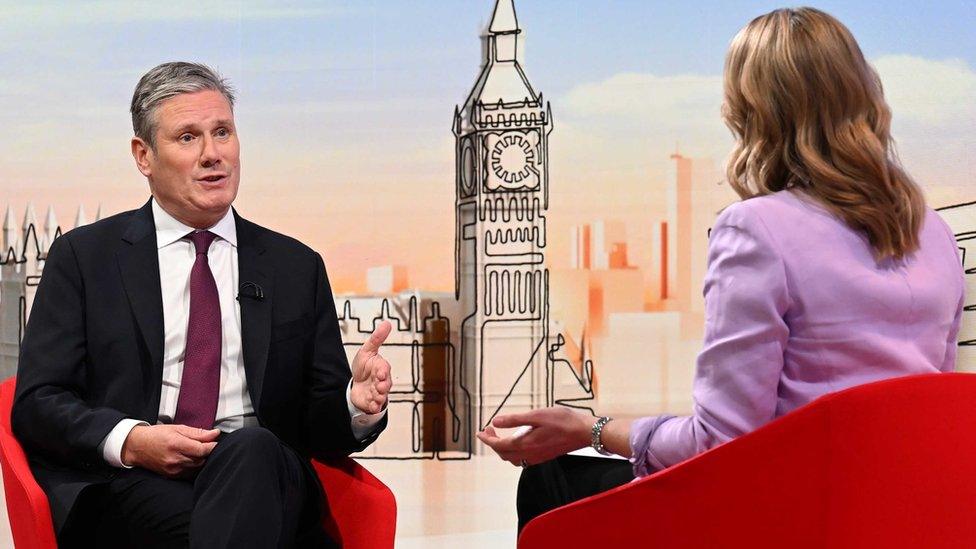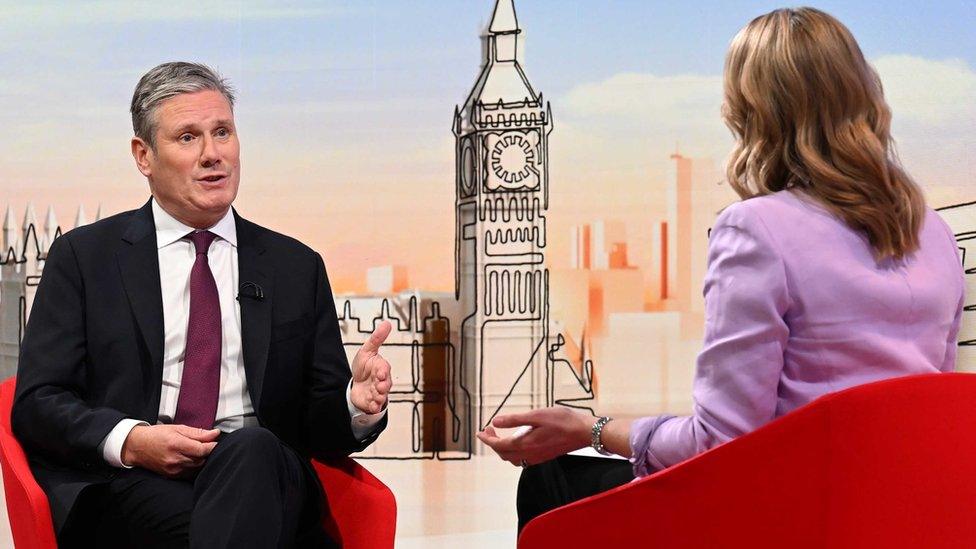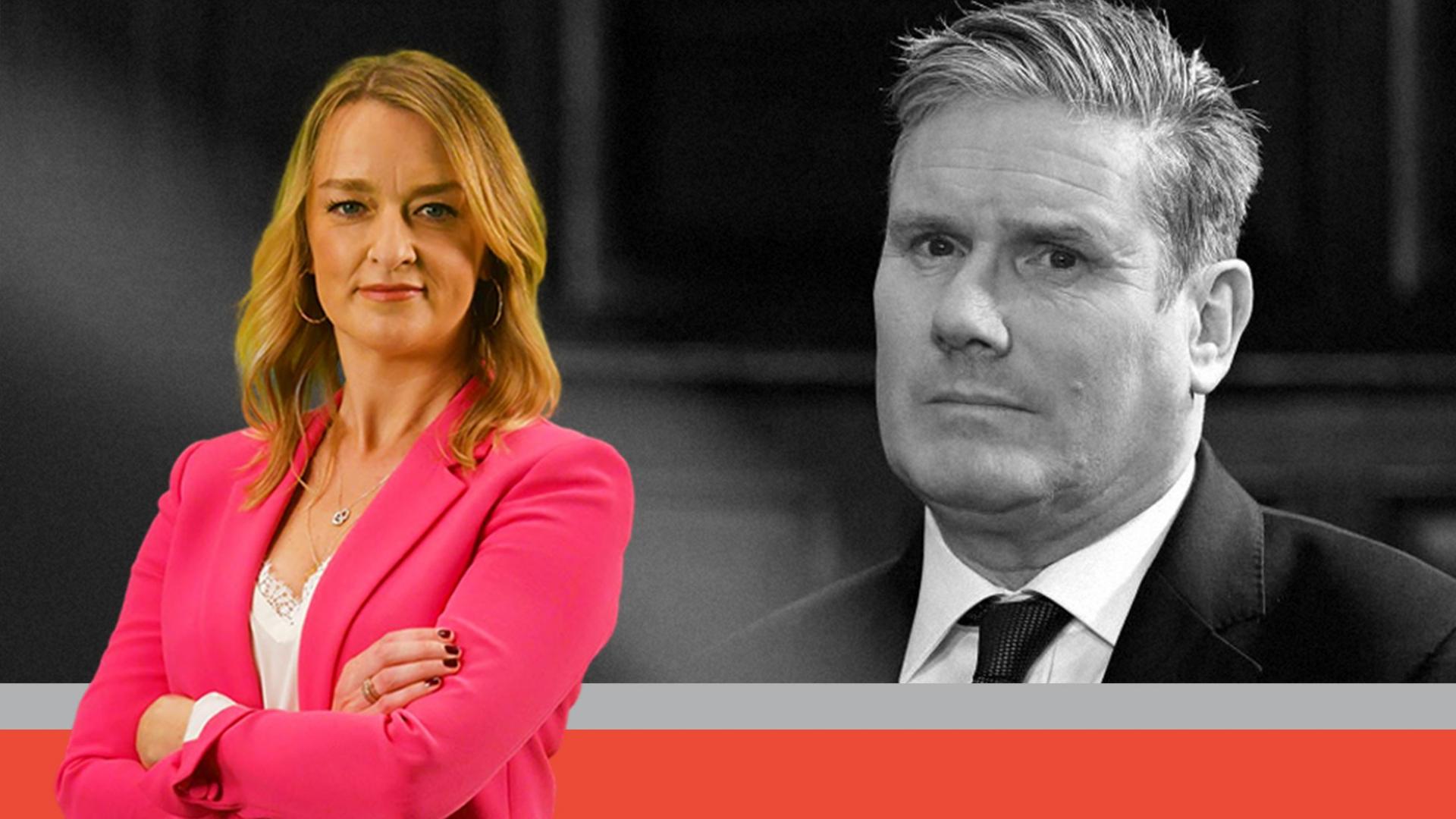Two-child benefit cap: Keir Starmer to face challenge from Labour policy body
- Published

Labour leader Sir Keir Starmer's refusal to abolish the two-child limit on claiming some benefits will be challenged at a meeting of the party's policy body this weekend.
Sir Keir has faced a backlash from across his party over the issue.
Labour's National Policy Forum brings together trade union, party members and shadow cabinet representatives.
The meeting, held behind closed doors in Nottingham, is an important staging post in drawing up the next manifesto.
However, policies agreed there will not automatically be included.
The content of six policy documents will be finalised and sent to the party's annual conference in October.
The party leadership has already accepted some amendments to the draft documents - including restating the commitment to rail nationalisation and improving the provision of early years education - though without a spending commitment attached.
But a range of other proposed changes have not been agreed, and will be up for debate - including on welfare.
Both the county's largest union, Unison and the shop workers' union Usdaw are backing an amendment to "end the punitive features" of the benefit system, including specifically the benefits cap and the two-child limit.
The cap, which came into force in 2017, restricts child tax credit and universal credit to the first two children in a family, with only a few exceptions, external.
The Child Poverty Action Group estimates removing the limit would cost £1.3bn a year but would lift 250,000 children out of poverty overnight.
Sir Keir told the BBC's Sunday with Laura Kuenssberg the policy would not change under a Labour government.
Although he did not give a reason during the interview, members of his shadow cabinet said it was because this would constitute an unfunded spending commitment.
Sir Keir referenced the backlash to his interview during an event with former Labour leader Sir Tony Blair on Tuesday, saying there was a row ongoing within the party about "tough choices".
"We have to take the tough decisions," he said, adding that the experience of former PM Liz Truss's premiership showed "if you make unfunded commitments then the economy is damaged and working people pay the price".
Starmer: Labour will not make "unfunded commitments" like Liz Truss
The leadership wants to establish economic credibility above all, and avoid giving the Conservatives the ammunition to run a "Labour's tax bombshell" campaign, which proved so successful in 1992 - also after 13 years of Tory government.
Sir Keir's critics fall in to two camps - both of which go beyond his usual detractors.
The first involve those who want to see the policy changed - from Unison, which nominated Sir Keir for the leadership, to some former shadow ministers, to Labour's moderate leader in Scotland, Anas Sarwar.
The second group - who are muttering privately rather than publicly - are with the programme when it comes to refraining from uncosted commitments.
This includes some serving shadow ministers.
Their view is roughly this:
That Sir Keir committed to not changing a Conservative policy in his interview with the BBC on Sunday.
They feel instead - like deputy leader Angela Rayner and shadow work and pensions secretary Jonathan Ashworth - he could have denounced the policy, but simply explained the money was not there to change it yet, as the Conservatives have crashed the economy.
They feel that approach would have left the door open to addressing the issue when or if the economy improves, and therefore have avoided the current row.

Sir Keir confirmed his position on the two-child benefit cap in a BBC interview on Sunday
Sir Keir, though, will be aware that the two-child limit is far less unpopular with potential voters than it is with party members.
But a shadow cabinet ally of Sir Keir's denied that he had attempted to throw potential voters in former Labour strongholds in the Midlands and northern England - known as the "red wall" - some red meat.
The ally insisted Sir Keir was absolutely committed to tackling child poverty and that his robust response on the issue was simply to quash any speculation that an unfunded commitment could be wrung out of him.
But there is a wider frustration that while Labour is attacking the government's record - for example, on child poverty - shadow ministers are constrained in proposing solutions.
At the policy forum this weekend, there will also be a push by some unions and left-wing delegates in particular for the party to commit to free school meals for all primary school children in England.
The left-wing group Momentum will be pushing for a more radical agenda across the board this weekend - from public ownership to rent controls and increasing international aid.
They are unlikely to win many victories but in alliance with the unions their hope is that on benefits and school meals, the leadership will be given a clear message.
There are many in the party that would not sign up to some of Momentum's preferred policies.
But there is a wider concern in Labour's ranks about whether the party's programme can inspire, and not just reassure, potential voters.
Related topics
- Published16 July 2023

- Published15 July 2023
